Governance und Finanzierung
Diese Forschungsgruppe untersucht traditionelle und moderne Ansichten über Corporate Governance auf den Finanzmärkten. Sie trägt dazu bei, die Wirksamkeit verschiedener Governance-Mechanismen bei der Auswahl von Talenten, der Schaffung von Anreizen und der Bindung an das Unternehmen zu verstehen. Die Gruppe untersucht auch, wie verschiedene Stakeholder die Corporate Governance beeinflussen.
Forschungscluster
Finanzresilienz und RegulierungIhr Kontakt

- Abteilung Finanzmärkte
Referierte Publikationen

Stock Liquidity, Empire Building, and Valuation
in: Journal of Corporate Finance, 2021
Abstract
We conjecture that high stock liquidity negatively affects firm valuation by inducing inefficient investment. Using takeovers of public targets to study the empire-building motive, we find that a liquid firm is more likely than an illiquid firm to acquire a public firm. Such a takeover by a bidder with higher stock liquidity destroys bidder value to a larger degree. These patterns occur in both stock and cash acquisitions and hold after we use decimalization of tick size as a quasi-exogenous shock to stock liquidity. Finally, we show that financial constraints and corporate governance play important roles in the effects of stock liquidity on empire building in mergers and acquisitions.
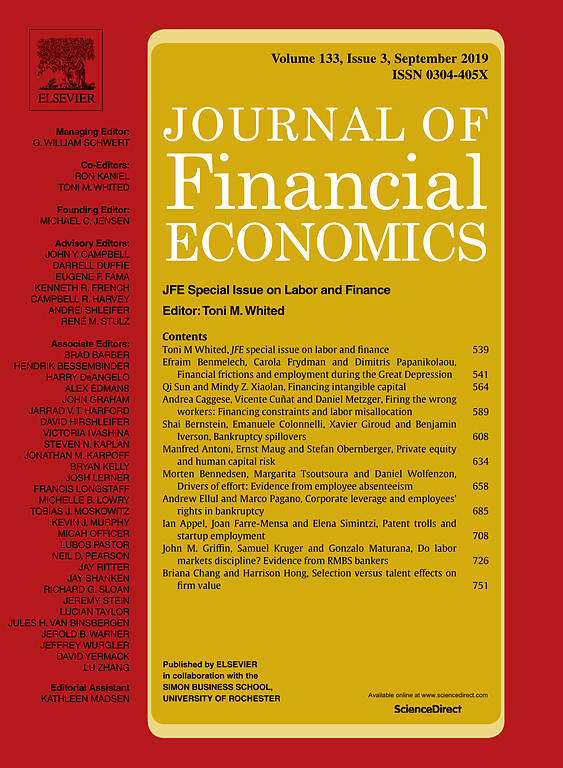
Do Activist Hedge Funds Target Female CEOs? The Role of CEO Gender in Hedge Fund Activism
in: Journal of Financial Economics, Nr. 1, 2021
Abstract
Using a comprehensive US hedge fund activism dataset from 2003 to 2018, we find that activist hedge funds are about 52% more likely to target firms with female CEOs compared to firms with male CEOs. We find that firm fundamentals, the existence of a “glass cliff,” gender discrimination bias, and hedge fund activists’ inherent characteristics do not explain the observed gender effect. We also find that the transformational leadership style of female CEOs is a plausible explanation for this gender effect: instead of being self-defensive, female CEOs are more likely to communicate and cooperate with hedge fund activists to achieve intervention goals. Finally, we find that female-led targets experience greater increases in market and operational performance subsequent to hedge fund targeting.
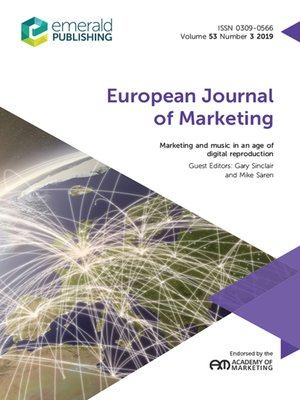
Executives with Customer Experience and Firm Performance in the B2B Context
in: European Journal of Marketing, Nr. 7, 2021
Abstract
<i>Purpose:</i> This paper aims to examine the presence of an executive with customer experience (ECE) in a supplier firm’s top management team (TMT). The role of ECE presence remains understudied in the marketing literature. This study attempts to examine the relationship between ECE presence and firm performance. <i>Design/methodology/approach:</i> This paper draws on the resource-based view of the firm and adopts a panel firm fixed effects estimator to test the proposed hypotheses. The empirical analysis uses a sample of 1,974 firm-year observations with 489 unique supplier firms. Selection-induced endogeneity is mitigated through the Heckman procedure. <i>Findings:</i> ECE presence improves firm performance. Additionally, firms benefit less from ECE presence if a board member with customer experience (BCE) is also present, if a chief executive officer commands a higher pay slice (compared to other executives), and if a TMT is more functionally diversified. However, ECE presence is particularly beneficial if the overall economy is in contraction. Comparing the functional positions held by ECEs reveals that ECE in the marketing function (as a chief marketing officer) offers the largest benefit to an average supplier firm. ECE presence is also associated with other firm outcomes (e.g. bankruptcy odds, innovation and customer orientation).
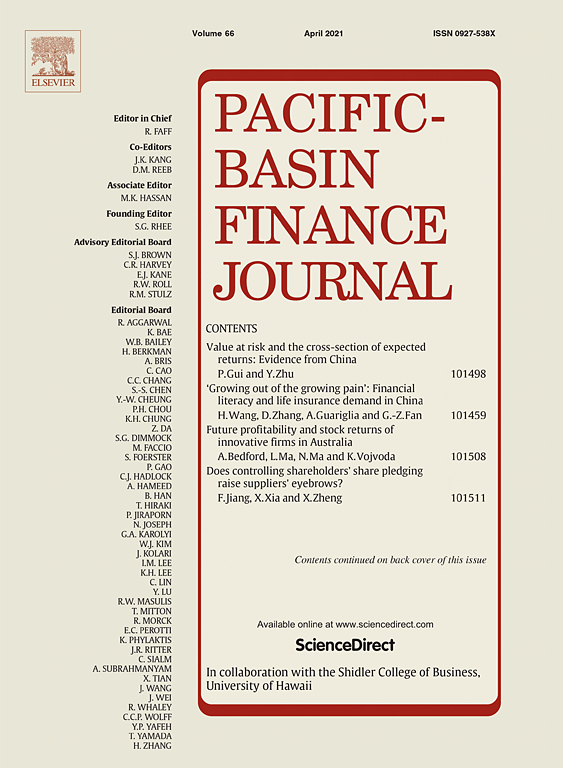
The Effect of Language on Investing: Evidence from Searches in Chinese Versus English
in: Pacific-Basin Finance Journal, June 2021
Abstract
This study examines the language effect on investing behavior in local stock markets for local- and foreign-language investors using Google search records. First, we find that attention to a local language stimulates attention to a foreign language, increases abnormal news coverage, and has better predictability on stock returns. Second, investors who do Google searches in the local language react faster to a news event's shock than those who search in the foreign language. Third, only attention to the local language can reduce the price drift of an earnings surprise. Last, firm-level information asymmetry is a channel for local advantage. Therefore, we suggest that investors who use a stock market's local language have a local advantage when seeking more profitable investment opportunities in that stock market.
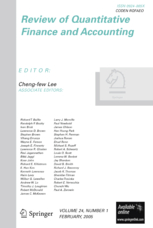
Agency Cost of CEO Perquisites in Bank Loan Contracts
in: Review of Quantitative Finance and Accounting, May 2021
Abstract
This study investigates the association between CEO perquisites and bank loan spreads. We collect detailed data on CEO perquisites from the proxy statements of S&P 500 firms between 1993 and 2015 to study this issue. The empirical evidence supports the agency cost view that the lending banks demand significantly higher returns (spread), more collateral, and stricter covenants from firms with higher CEO perquisites. We further confirm that the effect of these perquisites remains after we control for various corporate governance and agency cost factors. We conclude that banks consider CEO perquisites as a type of agency cost when they make lending decisions.
Arbeitspapiere
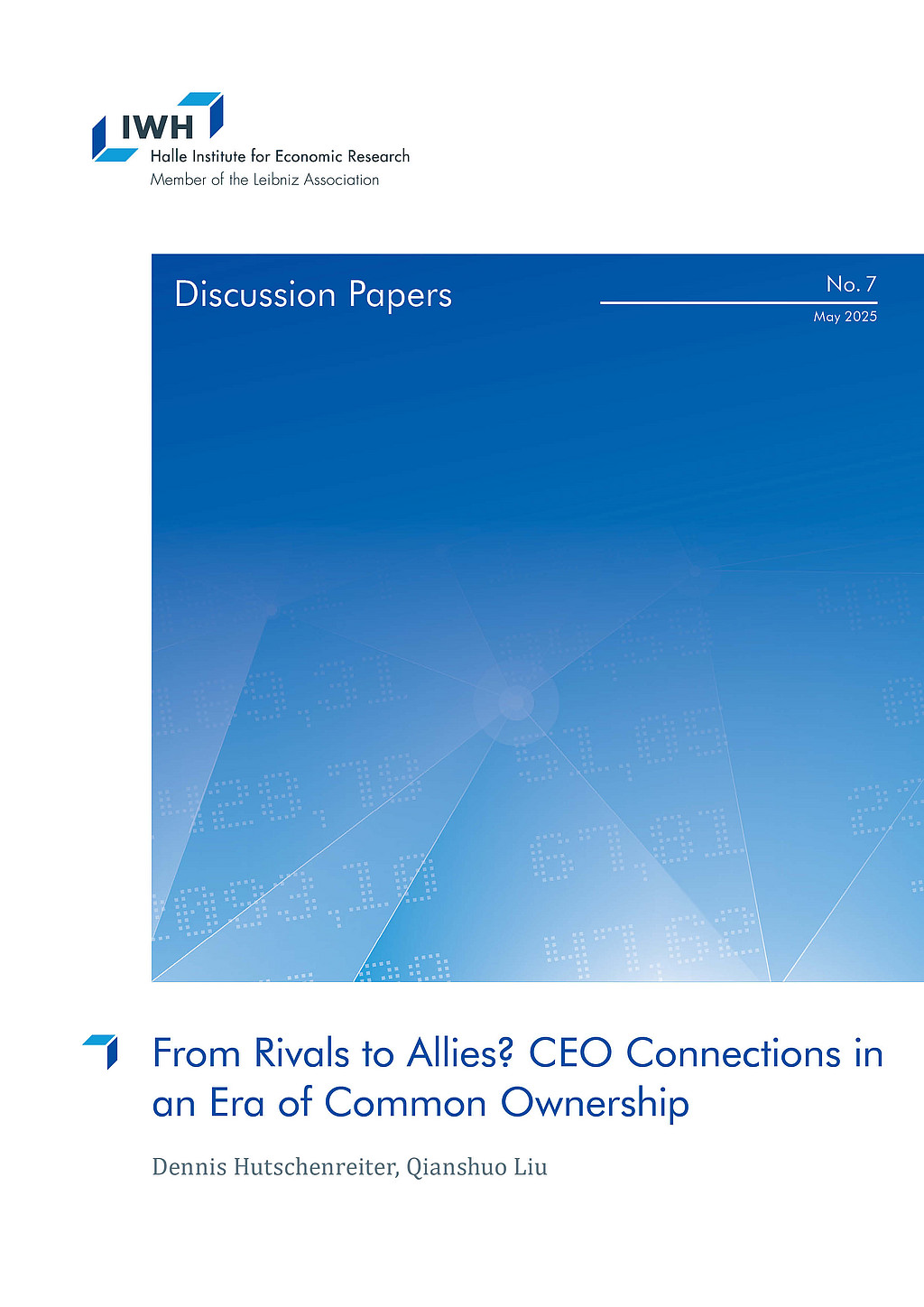
From Rivals to Allies? CEO Connections in an Era of Common Ownership
in: IWH Discussion Papers, Nr. 7, 2025
Abstract
<p>Institutional common ownership of firm pairs in the same industry increases the likelihood of a preexisting social connection among their CEOs. We establish this relationship using a quasi-natural experiment that exploits institutional mergers combined with firms’ hiring events and detailed information on CEO biographies. In addition, for peer firms, gaining a CEO connection from a hiring firm’s CEO appointment correlates with higher returns on assets, stock market returns, and decreasing product similarity between companies. We find evidence consistent with common owners allocating CEO connections to shape managerial decisionmaking and increase portfolio firms’ performance.</p>
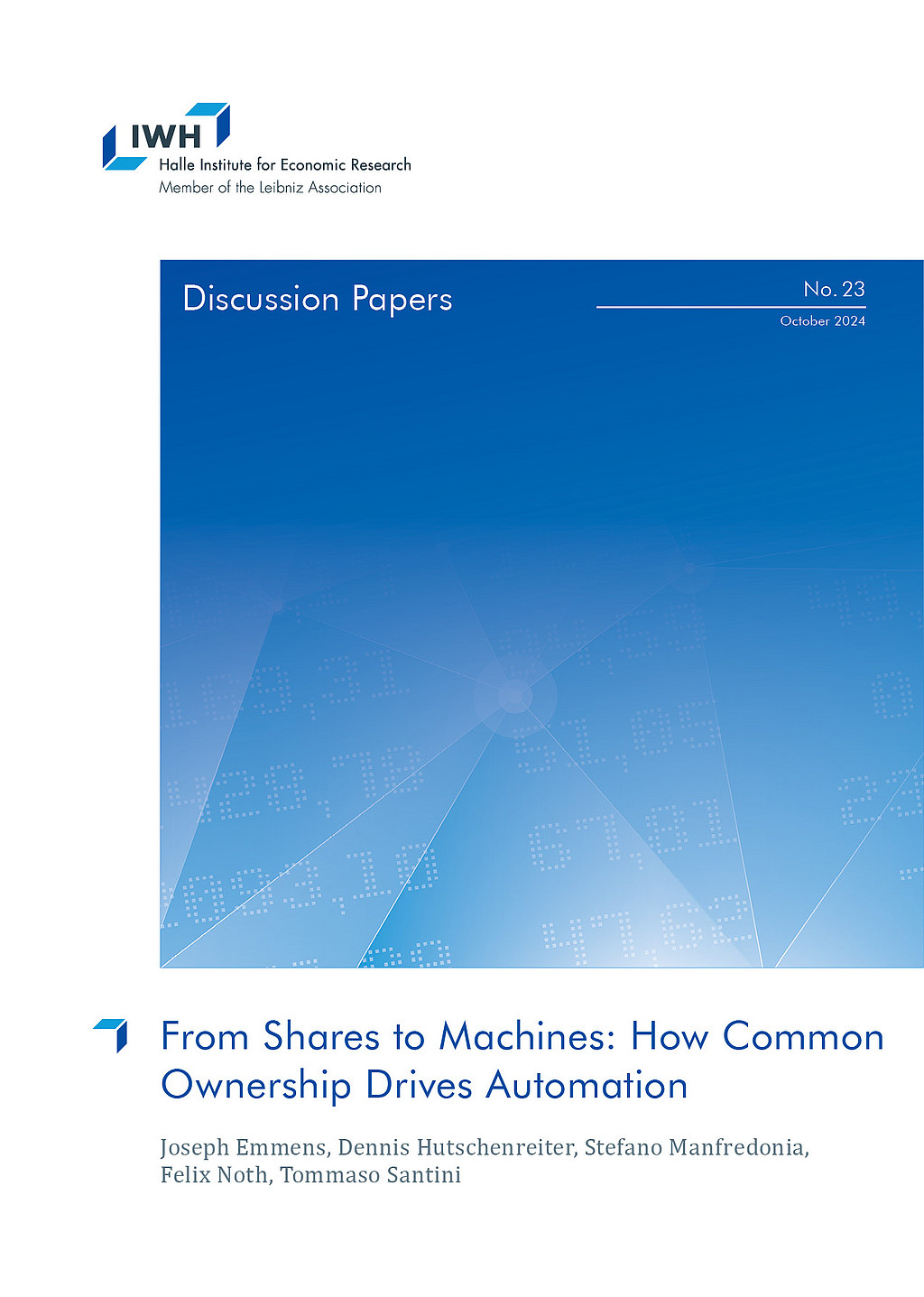
From Shares to Machines: How Common Ownership Drives Automation
in: IWH Discussion Papers, Nr. 23, 2024
Abstract
<p>Does increasing common ownership influence firms’ automation strategies? We develop and empirically test a theory indicating that institutional investors’ common ownership drives firms that employ workers in the same local labor markets to boost automation-related innovation. First, we present a model integrating task-based production and common ownership, demonstrating that greater ownership overlap drives firms to internalize the impact of their automation decisions on the wage bills of local labor market competitors, leading to more automation and reduced employment. Second, we empirically validate the model’s predictions. Based on patent texts, the geographic distribution of firms’ labor forces at the establishment level, and exogenous increases in common ownership due to institutional investor mergers, we analyze the effects of rising common ownership on automation innovation within and across labor markets. Our findings reveal that firms experiencing a positive shock to common ownership with labor market rivals exhibit increased automation and decreased employment growth. Conversely, similar ownership shocks do not affect automation innovation if firms do not share local labor markets.</p>
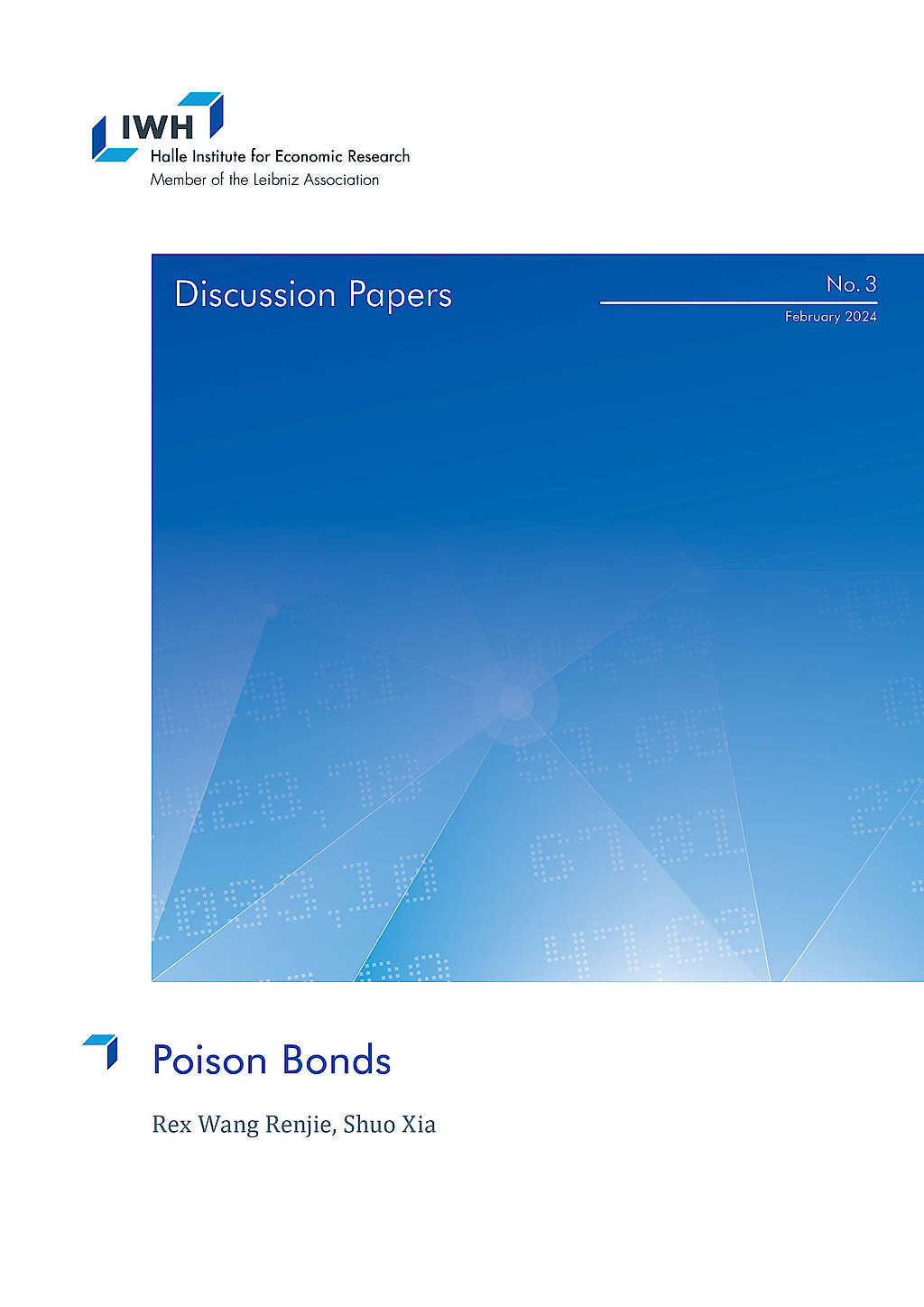
Poison Bonds
in: IWH Discussion Papers, Nr. 3, 2024
Abstract
This paper documents the rise of “poison bonds”, which are corporate bonds that allow bondholders to demand immediate repayment in a change-of-control event. The share of poison bonds among new issues has grown substantially in recent years, from below 20% in the 90s to over 60% since mid-2000s. This increase is predominantly driven by investment-grade issues. We provide causal evidence that the pressure to eliminate poison pills has led firms to issue poison bonds as an alternative. Our analysis suggests that this practice entrenches incumbent managers and destroys shareholder value. Holding a portfolio of firms that remove poison pills but promptly issue poison bonds results in negative abnormal returns of −7.3% per year. Our findings have important implications for the agency theory of debt: (i) more debt may not discipline the management; and (ii) even without financial distress, managerial entrenchment can lead to agency conflicts between shareholders and creditors.
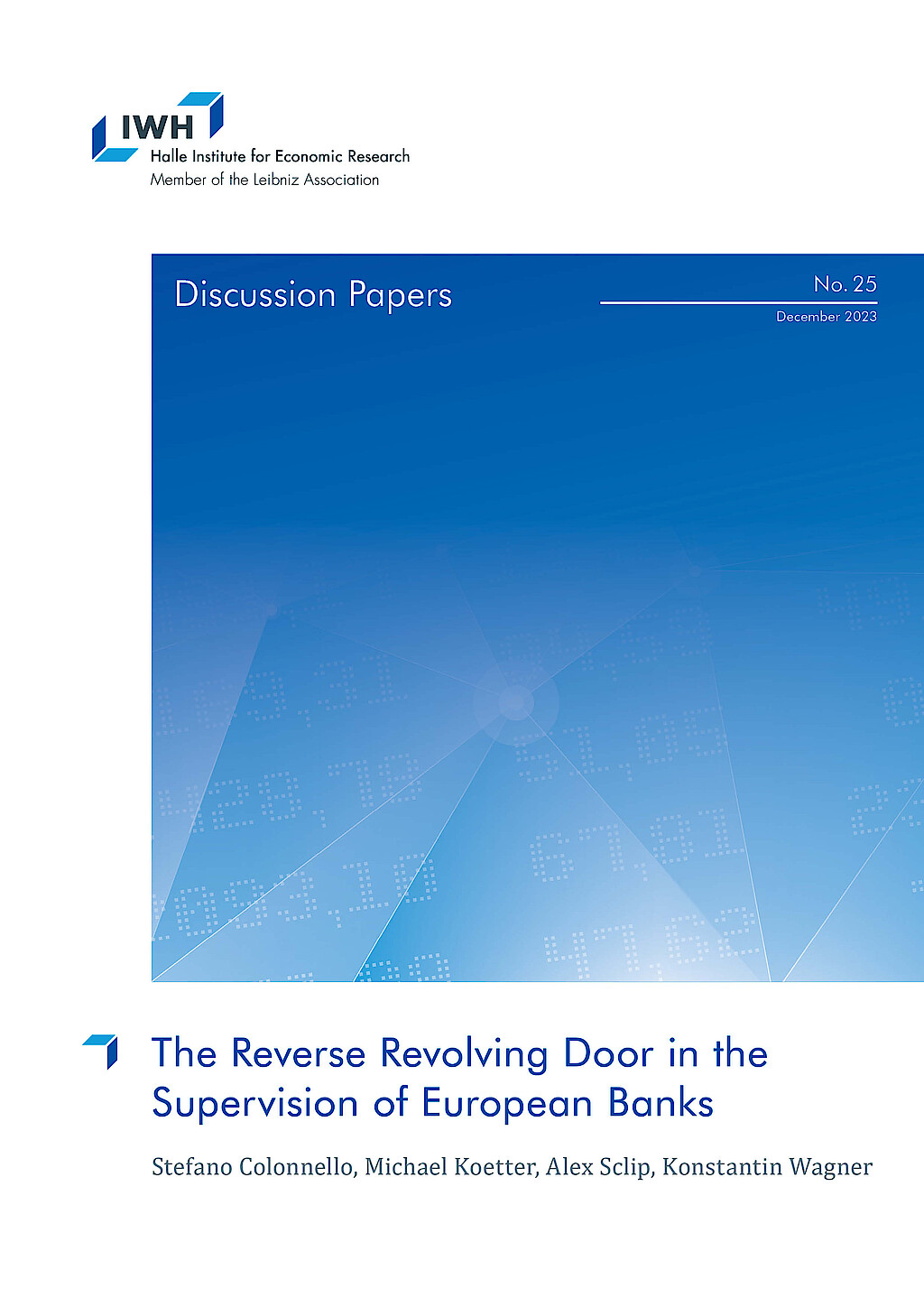
The Reverse Revolving Door in the Supervision of European Banks
in: IWH Discussion Papers, Nr. 25, 2023
Abstract
We show that around one third of executive directors on the boards of national supervisory authorities (NSA) in European banking have an employment history in the financial industry. The appointment of executives without a finance background associates with negative valuation effects. Appointments of former bankers, in turn, spark positive stock market reactions. This „proximity premium“ of supervised banks is a more likely driver of positive valuation effects than superior financial expertise or intrinsic skills of former executives from the financial industry. Prior to the inception of the European Single Supervisory Mechanism, the presence of former financial industry executives on the board of NSA associates with lower regulatory capital and faster growth of banks, pointing to a more lenient supervisory style.

Poison Bonds
in: SSRN Discussion Paper, 2023
Abstract
This paper documents the rise of "poison bonds", which are corporate bonds that allow bondholders to demand immediate repayment in a change-of-control event. The share of poison bonds among new issues has grown substantially in recent years, from below 20% in the 90s to over 60% after 2005. This increase is predominantly driven by investment-grade issues. We provide causal evidence that the pressure to eliminate poison pills has led firms to issue poison bonds as an alternative. Further analyses suggest that this practice entrenches incumbent managers, coincidentally benefits bondholders, but destroys shareholder value. Holding a portfolio of firms that remove poison pills but promptly issue poison bonds results in negative abnormal returns of -7.3% per year. Our findings have important implications for understanding the agency benefits and costs of debt: (1) more debt does not necessarily discipline the management; and (2) even without financial distress, managerial entrenchment can lead to conflicts between shareholders and creditors.










